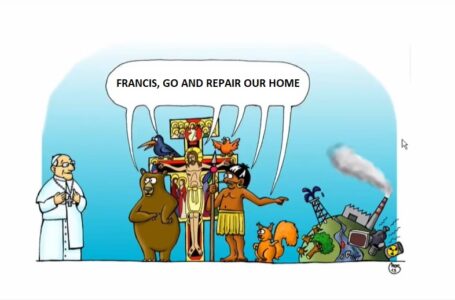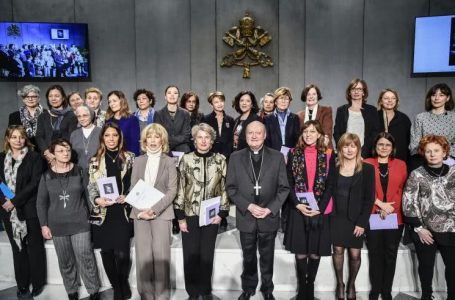Changes in the Catholic Church – The Context of Malta
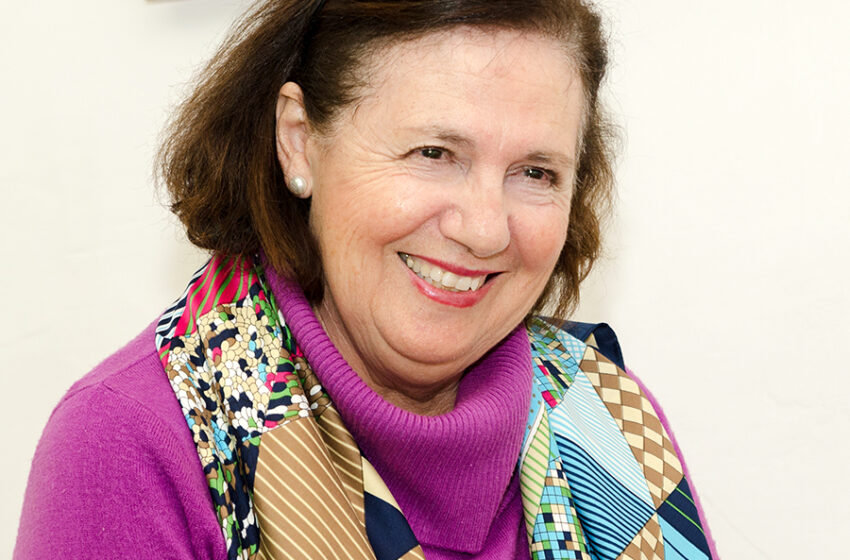
Gina Debattista. Photo: Christina Gatt
In this interview, Gina Debattista, a Gestalt psychotherapist and senior visiting lecturer at the University of Malta, speaks about changes in the Catholic Church that she wishes to see. She also speaks of her hopes for a future Church made up of committed Catholics.
Change 1 –Social Justice as a necessary outcome of prayer
One of the main changes Gina wishes to see in the Catholic Church is a higher commitment to social justice: “I think that the average Maltese Catholic is committed to prayer. They are committed to their community, and to the religious aspect of the Catholic faith. However, in my experience, only a few relate their experience of faith with what is happening in society. I would like to see more Maltese Catholics interested and active in issues related to social justice. I feel disappointed when I see indifference among some members in the Church, regarding this area.”
“It is understandable that people may find it hard to be concerned with what is happening around them because of personal problems or crises. However, I sense a dichotomy between finding refuge in prayer/praising God and living our faith in our daily life as members of a big family which is society. I feel that the idea of praying and praising God as the way to live one’s faith, gets too inflated sometimes. The Christian is called both to prayer and action. Jesus gave us a call to action. He said, “Go therefore and make disciples of all nations …” (Mt 28:19) Jesus wants us to be messengers and living witnesses of his teaching. Therefore, through our lives and witnessing we are to be agents of change here on earth.”
An old heavy Church vs Pope Francis’ desire for change
Gina sighs as she says, “To me the Church comes across as heavy and outdated. It is often scorned and marginalised. The Church itself also retreats into the background sometimes. Moreover, the congregation is mostly made up of people from the older generations. This sense of heaviness triggers in me a desire to work for change in the Church. Christ’s message is always fresh and boundless. It is relevant at all times. This instigates a desire for change which is significantly expressed by Pope Francis.”
“The Church we see projected by Pope Francis is a dynamic Church; a Church which is trying to fulfill itself. It is a Church which is inclusive and open to all, no matter whether one is married or separated, heterosexual or gay. Yet, this is not an easy endeavor. Change is resisted”, says Gina. “After all, even Christ faced resistance whilst on earth. Pope Francis too encounters resistance even within the Church. Resistance is a significant component of human nature. The Church needs to find new challenging ways to deal with this reality.”
Resistance to changes in the Catholic Church
Gina adds, “Another thing that sometimes worries me, are the attitudes within the Church’s organisations or communities. They remind me of political parties trying to vie for my vote. Sometimes they speak against each other stating; ‘our mass is cool’. I do not want to discredit their contribution in the Church. However, I feel that sometimes they are detached from reality. I know some of these members personally. They are good people, trustworthy, helpful and reliable when it comes to offer support. However, sometimes one can sense an attitude of arrogance or the feeling that ‘I know God better than you do’ when it comes to getting Christ’s message across. This may be due to their over-enthusiasm.”
“In my opinion, it is not enough to be a good Christian. The Christian mission does not stop within the community. The Christian social conscience goes beyond the sense of belonging that the community provides. For example, where are these people in the abortion debate? Sometimes I ask myself, ‘Is it possible that so many things are happening around us which are destroying the moral compass of society and we feel nothing? Are we so indifferent?’ It seems that we are oblivious to it. My question is, ‘As Catholics, shouldn’t our social conscience demand much more from us than just praying?’”
Change 2 – The Church needs to respond to what people are looking for
Gina explains that being a member of the Catholic Church means that “I do not only find my place and a sense of belonging within the Church. I am called to reflect deeper upon Jesus’ teaching and the meaning which we need to give it today. I am challenged to discover what God expects from me in the circumstances of the present day. For example, how could it be that I go to Church, attend mass and I remain unchanged? People need to feel inspired.”
Gina outlines another one of the changes in the Catholic Church that she wishes to see. “We need a Church that is not just a force-feeder. The Church clergy also needs to helps us, believers, to reflect and be open to being transformed. We need to respond to the needs of the congregation. If the homily does not inspire me, if it does not trigger something in me, then I am physically in Church but I am not psychologically present. I am not in contact with Christ’s message. This is partly the priest’s responsibility. I understand that not all priests are endowed with a good voice projection or the gift of preaching. However, they do need to ask and reflect: ‘What are the real needs of the people? How can I facilitate the encounter between Christ’s message and the congregation?’ This is what Christ did; he used to meet people’s needs.”
“Jesus knew how to encounter and make contact with the person. I wish to see the Church using more psychological resources and tools to better understand the members’ spiritual needs. Furthermore, even the skills, being used to transmit Christ’s message, need to be more relevant and applicable to today’s reality.”
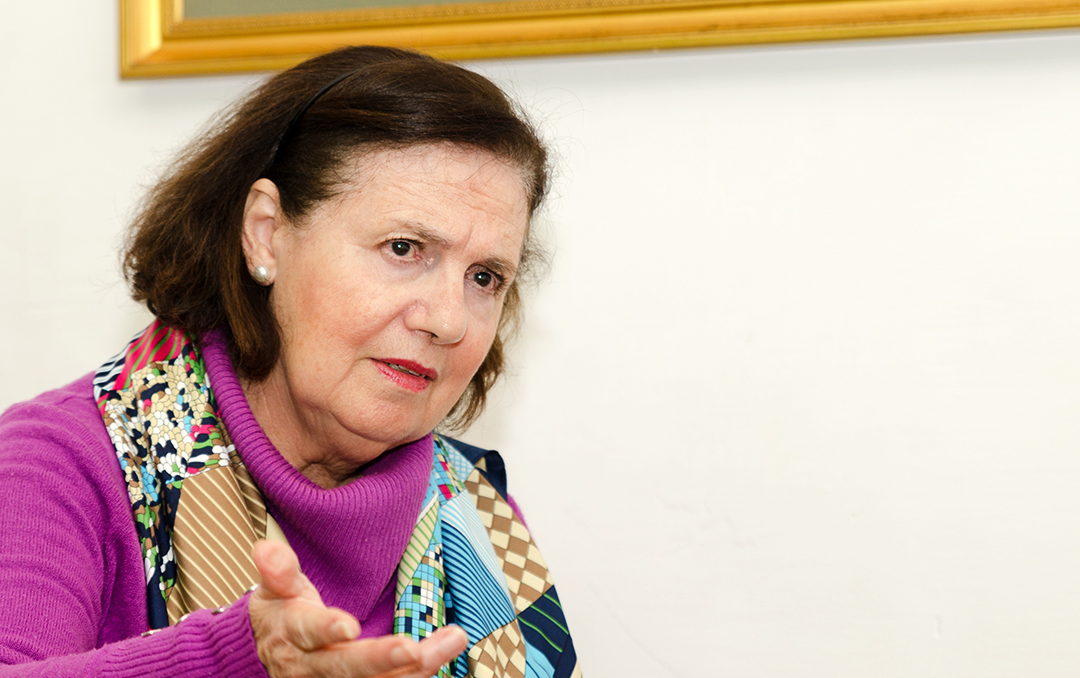
Change 3 – We cannot remain passive in front of evil
Gina believes and stresses again that the teachings of the Church on social justice should be emphasised and made more accessible. She says that: “When it comes to the Church’s teachings, many a time we just refer to the Bible. What about the social teachings of the Church? How much are we made aware of them? How can we develop our social conscience and relate it to today’s circumstances, if we are not familiar with the social teachings of the Church?”
“Through my work and my experience of giving catechism sessions to parents of children who are getting ready to receive the First Holy Communion, I find that people yearn for the space to discuss such important topics. The social teachings that the Church offers us are the guidelines and inspirations which educate us to be concerned with what is happening around us. For example, when Jesus instructed us “to drive out demons”, my understanding is that we cannot remain passive in front of evil. I cannot just pray and leave it in God’s hands.”
“As citizens, we have the duty to take action when things are not going well in society,” says Gina. “We cannot remain passive. All the prophets in the Bible, and Christ himself, were concerned with the injustice going on around them. They voiced their concerns. The mission of all the prophets was to strive to build the kingdom of God in this world. However, we all know that the prophets and Christ himself paid a price for it”.
Change 4 – We need to show both the masculine and the feminine side of God
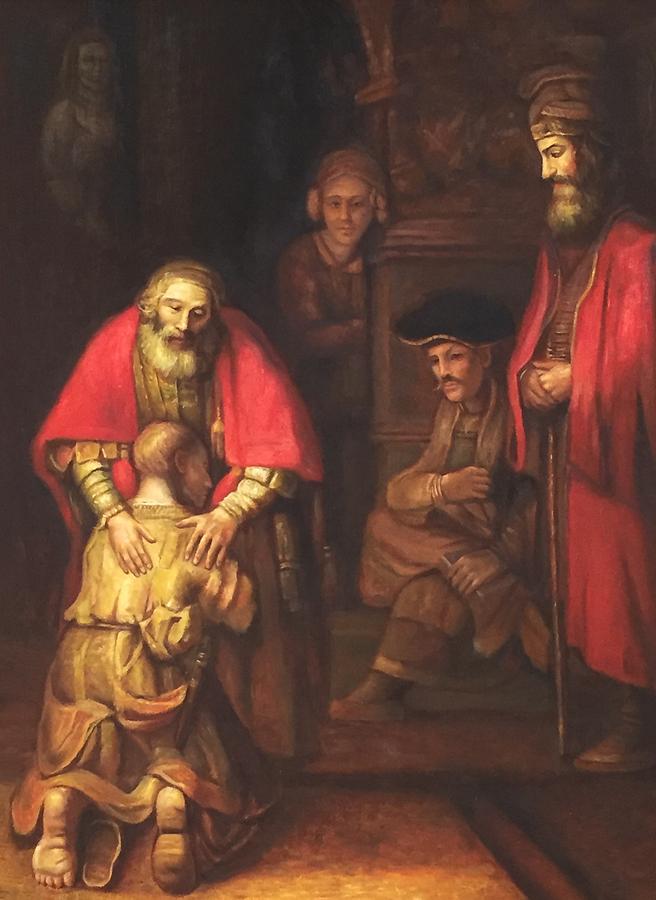
Gina reflects further: “I think of God as he is portrayed in the famous painting of Rembrandt. Here, the artist features the Father of the prodigal son with a feminine and a masculine hand. I feel that this is what we need to do as a Church today. We need to project the experience of God in both a masculine and a feminine way.”
“Today, we mostly speak of the feminine part – a merciful, loving God. We seem to ignore the fact that God challenges us to own responsibility. He expects us to work hand in hand with him”, Gina says. “For a time the Church has emphasised the fear of a punishing God. Perhaps now we are emphasising the sweetness of baby Jesus. However, we need to strike a balance. We need to come out of our comfort zone as Christians. This is clearly depicted in Rembrandt’s painting – The Return of the Prodigal Son – where we see God who is both understanding and supportive. Yet, at the same time, we see a firm and demanding God.”
Gina adds: “Psychologically we are created in the image of God; that is we have these two parts within us that is our nurturing and supportive side but we also have a part which makes us responsible for our own lives and that of others.”
Change 5 – Trusting in God does includes taking responsibility for my own actions
Gina argues that we cannot only trust in God, We also have to do our part. “I get irritated when I see quotes on social media channels saying, ‘Pray, pray, pray.’ ‘Leave it in God’s hands.’ ‘Trust in God’. We are God’s co-creators. We are co-workers in his Creation. God invited us to participate, improve and recreate the world around us. He gave us the strength and the resources to bring about change.
“I feel that the Maltese Catholic is over-dependent on God. We cannot just say ‘Pray’ and ‘Trust in God’ without asking: ‘What does God want from me in this particular situation?’ I cannot go out with a married man and then say, ‘If it’s not God’s will, this relationship will not continue.’ This is shifting the responsibility onto God. Evil reigns in society, not because it is God’s will. Very often it is a result of indifference; from being passive and closing our eyes to what is destructive and sinful.”
Change 6 – Staying updated with the Church’s teachings
On the other hand, Gina laments the fact that some Church members are not in touch with the Church’s guidelines. “I heard a person from a religious organization say that in marriage you should be submissive and accept everything as this is God’s will for you, even if it is abusive. I was astonished! How could this be? Is this what God wants? If this is what we’re teaching, no wonder people are leaving the Church. This is not what the Church teaches with respect to domestic violence; Pope Francis in The Joy of Love states clearly that “in cases where a spouse and children are experiencing violence and abuse, separation becomes inevitable and even morally necessary for their safety”. We do not need to go that far to be able to love – allowing a person to abuse me is not loving”.
Gina stresses that today’s Catholics, not just those in authority, need to be a voice among the many others. “I believe that in this secular/post-secular world, today’s Christians need to make themselves heard and seen in the public space, especially in the face of evil. We can’t stay in our own cozy corner. Our presence needs to be felt. Jesus told us to ‘pray in our room’ but also to ‘let our light shine.’”
Changes in the Church in response to Prayer and to Reading the Signs of the Times
Gina concludes, “I am aware that maybe I am carried away by all that is happening around us. I’m going through a stage in my life where I am very much concerned about what is happening in Malta with regards to the rapid political societal changes that we are experiencing. Maybe this predisposes me to interpret the Church’s reality the way I do. I am sure that there are other changes in the Catholic Church that one could focus on. I need to pray and reflect more about what is happening within me and around me. Yet, one significant thing is clear. I do not doubt that the Church needs to be in touch with the signs of the times so that the necessary changes will follow. Only in that way can it be the living body of Christ.”
Read more:
– Pope Benedict 16th on the Future of the Church
– What Are the Themes in Catholic Social Justice Teachings











